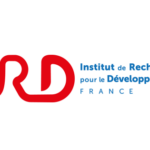This workshop-debate aims at crossing views between social sciences researchers and international cooperation practitioners on the links between civil society and democratic change.
More precisely, the objective is to analyse the relations between associations, state and lenders, and to observe how these impact on the associative field structuring and the ability of these associations to become actors of change.
The debates rely on a case study: that of Tunisia – characterized by a successful transition from authoritarianism to pluralism – which may be compared with other national contexts, such as that of Morocco or Algeria, with different institutional trajectories and policies.
Speaker:
- Pierre TAINTURIER, National Conservatory of Arts and Crafts-CNAM, Interdisciplinary Laboratory of Economic Sociology-LISE, introduces the debates with a presentation inspired from both his research conducted within the framework of his PhD in sociology and his professional experiences as an expert/consultant on citizen participation and support to civil society. His thesis “Associations and revolution in the village. The case of Tozeur in Tunisia” analyses the processes of politicization through action and associative engagement.

